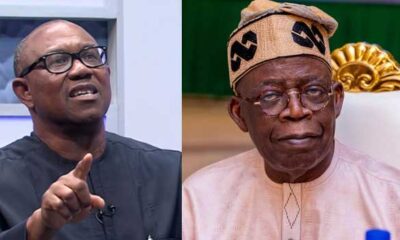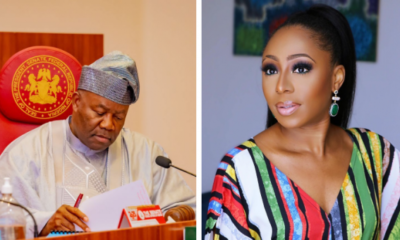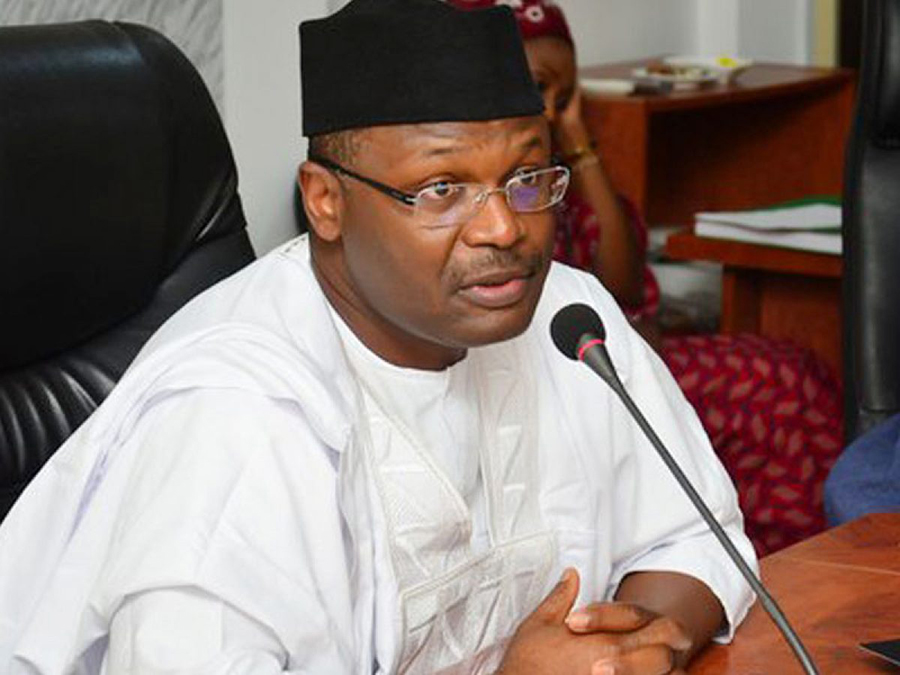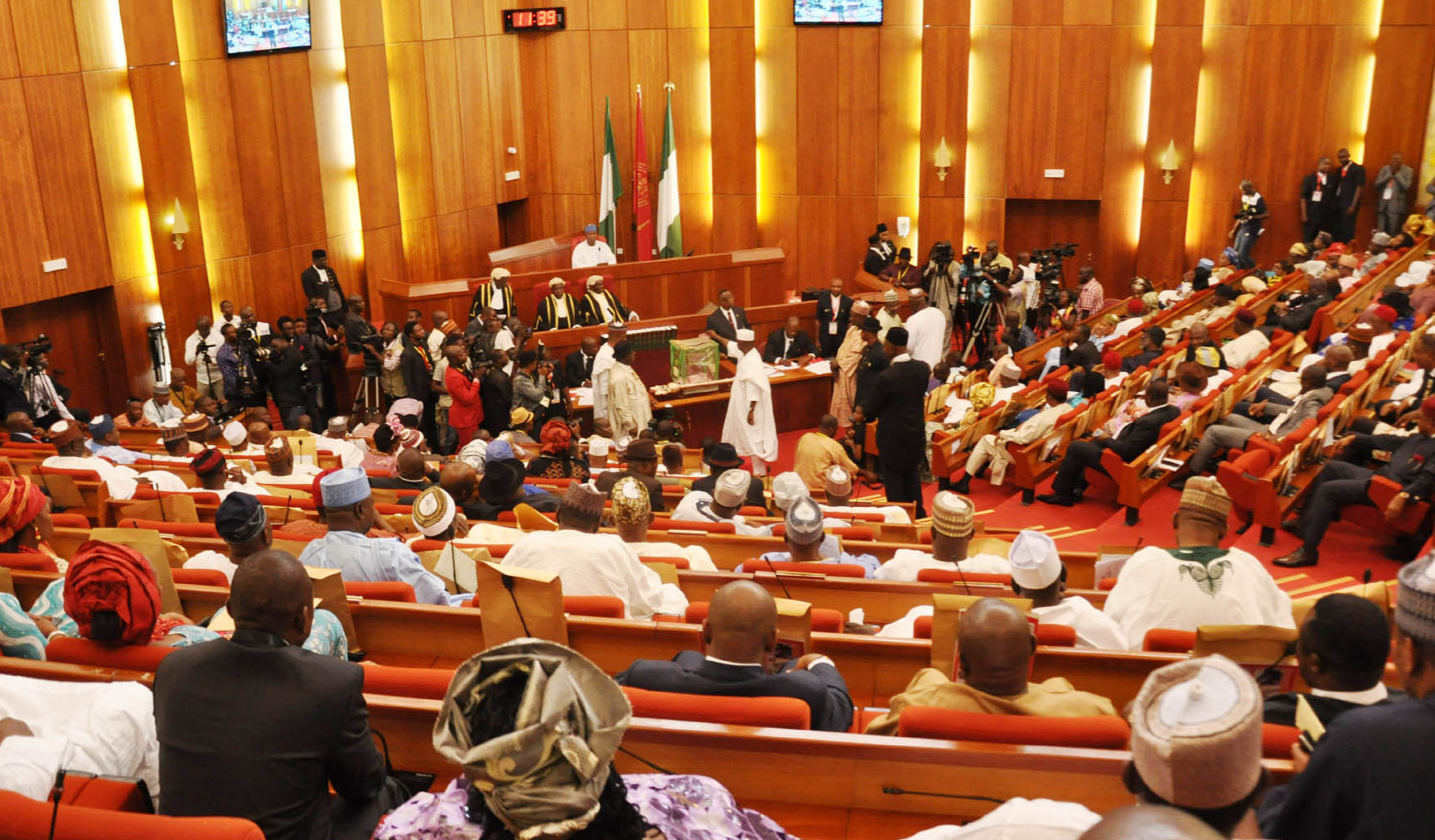Opinion
OPINION: From Buharinomics To BATonomics
Published
1 year agoon
By
Editor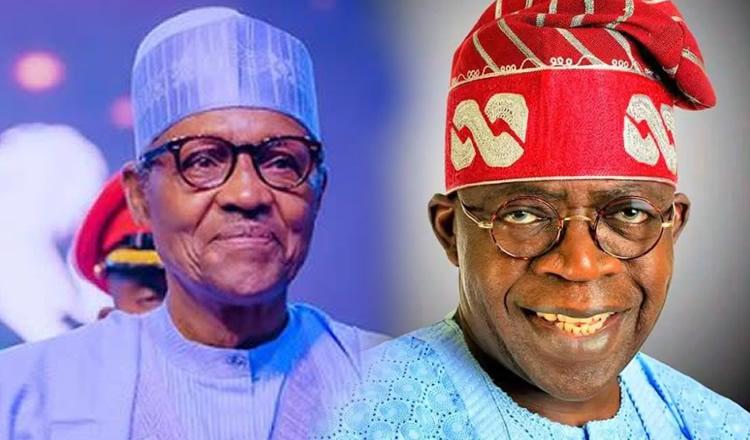
Richard Asoge
Following the declaration of the electoral umpire, INEC, in Nigeria after the political contest for the highest office, Bola Ahmed Tinubu of All Progressive Party was pronounced winner of the keenly contested position. It is no longer news that his co-contenders, Atiku Abubakar of Peoples Democratic Party and Peter Obi of Labour Party, are challenging the victory in court. If the opposition parties wish to explore legal means to the last point and at each stage the position of INEC is upheld by tribunal and all the way to the Supreme Court, then, Bola Ahmed Tinubu will rule the country for at least four years beginning from May 29th, 2023.
In this write up, Buharinomics encapsulated the economics ideas and policy initiatives of the out-going President of Nigeria, Muhammad Buhari toward improving the welfare of the citizens and as well delivery on his manifestoes in the past eight years of two terms. Buhari won the election against the then incumbent President, Goodluck Jonathan, in 2015 with wide margin because of his ‘social capital’ and was believed by good proportion of Nigerian that he has the magic wand to cure all sickness especially, corruption, insecurity and unhealthy economy at that time.
After six months in office, Anchor Borrowers Programme (ABP) was rolled out mainly to meet domestic demand for food and raw materials for manufacturing companies substantially in the short to medium term and in a progressive way. The programme was designed in such a way that smallholder farmers were given credit facilities by the Central Bank. Two years into the programme, the result was seen vividly as Nigeria ranked the highest rice cultivation and milling in Africa. However, the feat was only for a short period of, say a year, when it nosedives. This was not unconnected to the unwillingness of over 75% of the farmers who got the loan at initial stage to refund CBN for other smallholder farmers to benefit. They see it as part of the national cake. This was internal factor that frustrated the policy while the external factor was the failure of the neighboring countries to keep the ECOWAS agreement which stipulated that goods coming into the member’s country must not only be containerized but also passed through the right boarder. Rice, been the most consumed staple food in the country, were grossly short to the demand in the open market vis a vis the capacity of the available local rice producers and millers. Rice importation with other staple foods to close the gap was not officially supported hence serious spike in the prices of the items.
READ ALSO: OPINION: Adamawa’s Bìlísì And Nigerians In War-torn Sudan
Without doubt, quality road network is most salient component of a national multimodal transportation plan upon which advance countries thrive. This is unconnected to the drive of President Buhari to connect major cities in the country via standard gauge railway, bridges and road networks. 156 km Lagos-Ibadan standard gauge railway with an extension of 8.7km Lagos Port Complex was commissioned, Abuja – Kaduna standard gauge railway is not left behind. 327km Itakpe – Warri standard gauge commissioned after over 30 years of neglect. Second Niger Bridge and other related project received attention from Buhari. However, these came not without heavy borrowing. Out-going administration of Buhari inherited about N12.1trillion national debt in June 2015 and will probably bequest N77 trillion national debt to Tinubu on May 29th 2023. This is huge liability for a country using over 90 percent of its earnings for debt services.
In attempt to reduce unemployment rate by exposing the youth to different vocational skills, N-Power Programme was developed and implemented annually. In 2016, the first year the programme commenced, half of a million youths were taken off the street to change their orientations and train their hands in Technology, Agriculture, Office Management etc with a monthly stipend of N30,000. Some of the youths benefited from the one year practical training as they eventually became self-employed while larger percentage saw the programme as the opportunity to share from the national cake. It is true that the programme is not without its flaws but not strong enough to water down the little achievement.
The economic believes, actions and policies of Bola Ahmed Tinubu when swears in on May 29th, 2023 as the eighth democratically elected President of Federal Republic of Nigeria is coined by my humble self as BATonomics.
READ ALSO: OPINION: Awolowo And His Modern-Day ‘Disciples’
Of course, during electioneering there were more personal attacks than issue based campaign. However, one salient policy was noted during Tinubu’s campaigns and interviews – fuel or petrol subsidy removal. This is a very critical issue in Nigeria economy. It can make or mar the economy depending on the way it is handled. I support fuel subsidy removal but not without conditions because of the pivotal roles it plays in the economy. Domestic fuel refinery for local consumption is the first condition to argue for before total removal can bring about sustainable economic development. Otherwise, the move may be suicidal at short-run. 40 percent salary increase introduced by federal government is already gulped by the existing 21.91% inflation rate, the highest in the last 17 years, not to talk of when the subsidy is removed. By the way, what is the size of the recipients of the 40 percent salary increase to the workforce or total population?. On this premise, it is not out of order if Tinubu, on assumption of office, does a thorough investigation on what the existing four government refineries had gulped and as well delivered in the past eight years and take a position whether it is worthwhile for government to continue to be incharge or privatize them. Modular refineries should not just be on the paper but all efforts geared toward its realization because of the value chain, little capital and time involved for its establishment.
History will be kind to Tinubu if he is able to deploy his political wizardry to solve, substantially, the economic doldrums of Nigeria. If he means business, the first six months in office should not be for passing blames on the past administrations. Everybody knows that things are not in good shape.
Relative stability and closing the wide gap between the official foreign exchange rate and that of parallel market, improvement in power generation, transmission and distribution across the length and breadth of the country and security of lives and properties of the citizens irrespective of where they reside in Nigeria. All these and other key areas need serious and urgent attention for economic recovery and growth thereafter.
I wish the out-going President Buhari the best as he retires to his country home in Daura and as well welcome Tinubu as he prepares to face challenges for the better of all.
Richard Asoge
Clappahouse Analytics
chards001@gmail.com
08081492614
You may like


Presidency, Obi Trade Words Over Planned Hardship Protest


[UPDATED] Tinubu, APC Govs, Edo Deputy Gov, Shaibu, Meet Behind Closed-doors


BREAKING: Tinubu In Closed-door Meeting With APC Governors


Nationwide Protest: The Killer Is Afraid Of Death [OPINION]


BREAKING: Shelve Planned Hardship Protest, Tinubu Appeals To Nigerians


Tinubu Writes Reps To Amend Police Act, IGP Tenure

By Suyi Ayodele
I would have agreed that protests would happen on August 1, 2024, if the graph had been plotted by Godfather Bola Ahmed Tinubu. But he is the sitting president, not the opposition leader he used to be. You can’t ride a goat to intimidate a master horseman. The media can cry themselves hoarse, the street can cry and weep. Nothing is happening. The powerful dey kampe.
“This is not the age of pamphleteers. It is the age of the engineers. The spark-gap is mightier than the pen. Democracy will not be salvaged by men who talk fluently, debate forcefully and quote aptly.” Lancelot Hogben said the above in his ‘Science for the Citizen’ (1938). The mass media can only make its usual noise. Tinubu’s government is not the Wall of Jericho. No noise can threaten it.
And this is not peculiar to our situation. Governments in Africa hardly pay attention to write-ups and editorials. Nigeria is in a class of its own, when it comes to this. Apart from a very few, our leaders here have been the very dregs of humanity when it comes to literacy. A president once told us that he never read newspapers. One said he does not pay attention to social media. When a leader becomes naturally illiterate by closing his mind to any form of literature, we cannot but have the type of society we have in Nigeria. Worst still, the media aides of our leaders who are expected to fil in their principals on the daily editorials about their governments hardly do that. Whenever they get their principals to read what is in print about them, I bet it will be those third-party advocacy PR stuff planted. Those guys thrive in the illiteracy of their principals
A senior political aide of former governor of my Ekiti State once told me that the governor was so alienated from the happenings in town such that when the people rained curses on him while driving through the streets of Ado Ekiti, the state capital, and he asked what the people were saying, the response he used to get was that the people were hailing him as the true son of his father.
What about those articles in the newspapers? I asked. The ex-governor’s aide laughed. I was embarrassed. Nothing was funny. He looked at me and answered: “So, of all the issues with Oga, it is the newspapers he will be reading?” We had the discussion in our Ekiti dialect. I gave up.
Our leaders don’t, or hardly read. Governors and presidents are projected by their media aides as the darling of the people. This is why nothing changes no matter the number of articles written. But we will continue to write; we owe that as a sacred duty to the generations yet unborn. Let posterity record it that when it mattered, we did not lose our voices!
MORE FROM THE AUTHOR: OPINION: Supper For Nigeria’s Àkébàjé
This is why I don’t believe that anything tangible will happen on August 1. There may be nauseating noise here and there. There may be a bit of action in a few state capitals. But overall, nothing consequential will happen. The government will remain deaf. Hunger will continue to ravage the land. Inflation will not stop galloping. And our governments – state, local and federal, will remain lethargic. The pain will be more excruciating. The government won’t be moved a bit because it knows that the people’s goat will continue to shift even after hitting the wall.
There is no denying that things are hard, and the streets are not smiling. It is also a fact that as things stand now, the nation is standing on the edge of a cliff, precariously. The cord can snap, any moment, no doubt. But an organised protest remains ineffectual; it is never going to be the solution. I believe in protests. I believe that the people have the right to express their anger within the permissible limits of the law. Unlike Oga Bayo Onanuga, one of the media aides to President Bola Ahmed Tinubu, I don’t believe that the hunger and pains in the land wear any ethnic garment. I don’t believe, like Onanuga tried to project in his reaction to the planned protest, that a particular ethnic group is behind the so-called planned protest.
Poverty is not a native of any land. Abject want and lack is almost evenly distributed among all nationalities that make up Nigeria. Residents of Maiduguri are hungry; the people of Ibadan don’t have what to eat; just as those living in Nnewi don’t know where the next meal will come from. It is a partnership in deprivation! It does not rain anymore; it pours all over Nigeria. If August 1, 2024, ever happened, unlike Onanuga, I believe with every fibre of my being, that President Tinubu, rather than Peter Obi, the presidential candidate of the Labour Party (LP), should be held responsible. I tell you why I strongly feel this way.
Nigerians elected Tinubu as president and not Obi. If for anything, the bulk stops on Tinubu’s table. He is the one who holds the yam, the knife and the bellows to fan the embers that roast the yam. He is the one who should do all he could to bring an end to the sufferings in the land. The president, elected by the people, is the one to initiate policies that will make life more abundant for the people. He is to secure the country, revive and revamp the economy and provide an enabling environment for business to thrive.
If he fails in those responsibilities, he has the opposition to contend with. So, whatever Peter Obi is saying about this government, he is only doing his job as an opposition leader. Tinubu did worse, when he never contested election. I think Onanuga should stop acting like the old executioner who never wants the sword to be taken across his head! If the economy improves today, nobody will tell Obi to remain quiet. He has an audience because the government has gone to sleep. That should not be too difficult to understand!
MORE FROM THE AUTHOR: OPINION: Between Our Govt And New York Times
But if I were President Tinubu, I would not lose my sleep over the August 1 protest. Nothing tangible will happen. The president, if you ask me, should be worried about the organic eruption that will happen should we continue in this parlous state that Nigeria is. Nobody will plan it. Nobody will be its leader. It will be all-encompassing. It will spare nobody. The time ticks for the nation. That is what should bother President Tinubu; the day the people will, on their own, say, enough is enough! That is the day of great calamity that should be of concern to those in power. And guess what: nobody will be able to stop it! It will be like an earthquake that does not give any pre-knowledge. It would have started before we all knew what hit us! And there will be no escape route, anywhere!
Why should any government panic because an Omoyele Sowore said there will be a ‘revolution’? How many Nigerians can he mobilise? What will be his selling point? That he has remained on the side of the people all these years, or that he has no friends among the real enemies of the people? Will he ask the people to come to the streets when they know that his family is tucked away somewhere very impenetrable? Is he the one to tell the people that there is hunger in the land? Or that inflation which has eradicated the middle class is about to wipe out the lowest of the lowest? No!
Is it the unknown Northern Initiative for Growth that will mobilise those in the North to hit the streets? Won’t the people ask where the group was when General Muhammadu Buhari slept off for eight solid years? Why should anyone be scared about any Obedient Movement that was spontaneous only for the 2023 presidential election? If Peter Obi were to be a candidate today, where would he get the over six million votes of 2023? The real planner of the impending revolt is hunger. When it gets to that level that the people don’t have anything to eat anymore, they, like the proverbial tortoise, will enter the rain without being prompted. And that time is close; the real one that will create panic in government circles!
This is what Gizachew Tiruneh, a professor of Political Science at the University of Central Arkansas, United States, had in mind when, while writing for “Sage Journal” on September 18, 20214, in an article titled: “Social Revolutions: Their Causes, patterns, and Phases”, published online, said: “…The point is that nobody would be able to anticipate or predict, before the onset of a spontaneous revolutionary uprising, that popular opposition and resentment against the state would be exploding and catching fire across a given country.”
Tiruneh listed the French Revolution of 1789, the Russian Revolution of 1917, and the Chinese Revolution of 1911 as satisfying the “spontaneous” pattern of revolution. He went further to say that spontaneous revolution: “…occur when long-term socioeconomic development is followed by short-term and sharp economic reversals. More specifically, as people experience improving economic conditions over time, they come to expect that they will be able to obtain more and more. When the sharp reversal in economic fortune comes, the ability to obtain goods declines while the peoples’ expectations as to what they believe they should be able to obtain continue to rise. The gap between what people are able to obtain and what they believe they should be able to obtain grows and turns into a crisis of rising expectations. And unhappy, unsatisfied, and frustrated individuals then resort to political violence.” The question to ask is: what is the situation with Nigerians today? The political scientist warned that “How the state addresses the demands of its people for political reforms and economic welfare as well as how the state uses its coercive force responsibly would matter whether or not it faces revolution.” Tiruneh mentioned “gap”. Hogben also talked about “spark-gap”. The duo wrote decades apart. That, to me, is more than mere coincidence!
President Tinubu can still change the tide of time. All he needs to do is to pay more attention to governance than politics. Let the president prioritise the welfare of the people above second term and political ambitions. Mr President should pick one key area of the nation’s economic development, like power, and fix it. He does not have to put all his irons in the furnace at the same time. Fix power, fix insecurity and secure the food chain system. Get the farmers to go back to their farms and make food available Every other thing will begin to take shape. The distraction of a second term, when he has not done the first half of his first term, is one of the huge factors weighing Tinubu’s government down. This is what the hawks in, and around him are taking advantage of to exploit his human weakness. And, as for those, like Onanuga, who see every problem from the ethnic prism, may they have their day with the people when the bubble bursts!

By Suyi Ayodele
Every home has at least one spoilt child. Such a child is known as an Àkébàjé among my people. The Àkébàjé Omo cries for meat when his mates are asking for food – Àkébàjé únsunkún eran, elegbé e rè únsunkún oúnje. When eventually given what he craves, he complains that the pieces of meat in the plate will not allow him access to the stew (wón fun léran tán, ó tún ni eran ò jé kí òhun run obè). The elders of my place have a descriptive name for such a child: Omo gede aróde tò súlé (an over-pampered brat who leaves the outside to pee inside the living room). Àkébàjé can never be satisfied. He remains implacable. He keeps asking for more like Oliver Twist. He is a child with an eerie entitlement mentality! Every family which attempts to satisfy the many fancies of an Àkébàjé ends up in ruins.
One peculiar nature of an Àkébàjé is that he positions himself as an indispensable member of the family. He tells his parents that he holds the four aces. Usually, he comes in the form of either the only child or as the only male child in a society that is patrilineal and attaches importance to the male gender. In such a circumstance, the entire clan tends to pander to the wishes of an Àkébàjé. His greatest weapon is blackmail. He tells his dotting, and equally fretting parents to either satisfy his wishes or he leaves them in pain. He behaves like an Ogbanje, who can die anytime, prematurely. Whereas, he has everything to lose if he dies, but the parents don’t know this!
The parents of the Àkébàjé operate from a disadvantaged cum weak position. They always believe that the Àkébàjé Omo holds that which is most precious to them. The Àkébàjé knows this weakness of character in his parents. He, therefore, tightens the noose, pummelling his parents to submission, at any given time. Àkébàjé is as unfeeling as he is selfish. He is equally deft on the negotiation table. He is like the Gambler in Kenny Rogers’ song, “The Gambler”, Àkébàjé Omo /…Know when to hold ’em/Know when to fold ’em/Know when to walk away/And know when to run/. Like the gambler that he is, an Àkébàjé /knows the secret to survivin’/ But there are a few members of the clan who feel that the Àkébàjé needs to be treated with tough hands. Some others believe that the spoilt brat should be treated like any other normal child. The basic truth is that any community which pampers the Àkébàjés in its midst ends up very badly.
Nigeria is like that typical parent with an Àkébàjé child. The Àkébàjé of this epoch is the Miyetti Allah Cattle Breeders Association of Nigeria (MACBAN) of the North. The group has been over-pampered by the Nigerian nation for too long. It has grown wild such that it does whatever it likes with an out-and-out impunity. Every government, particularly the ones headed by Southerners, frets at its feet. MACBAN is the law. It decrees a thing, and it comes to pass. It can create or recreate any that catches its fancies. The group blackmails anyone to no end. You can blame it. When a dog has a marksman as a backup, it kills the most ambulant monkey! Supported by a powerful political block up North, Miyetti Allah dictates the pace in virtually every matter that has to do with agriculture. Its greatest weapon is the terror it visits on its hapless victims. Everyone cringes at the mention of herdsmen. Even presidents shiver in its presence. On the negotiation table, Miyetti Allah does not take prisoners. In the last one year, MACBAN has tested the waters on different occasions.
It started its deft calculation in Ibadan, Oyo State capital, on Saturday, April 20, 2024, when the group ‘signed’ a “peace” agreement with the non-existent Commodities Farmers’ Organisation in the South-West. The event was coordinated by one Olusegun Dasaolu, and supervised by the first daughter of President Bola Ahmed Tinubu, Mrs. Folashade Tinubu-Ojo, the Iyaloja General of Nigeria. That adventure birthed a piece titled: Why were Miyetti Allah and Tinubu’s Iyaloja in Ibadan?”, published on this page on April 23, 2024, That piece summarises that the Miyetti Allah and farmers ‘agreement’ in Ibadan was all about the 2027 second-term ambition of Tinubu. I stand by that position till the second coming of my Lord Jesus! What is after six is more than seven, so say our elders. We are coming to witness that in a short while!
MORE FROM THE AUTHOR: OPINION: Tinubu, ECOWAS And Its Rebellious Boys
The North is very wise. I mean wise like the Gambler of Kenny Rogers’ song. The North has over the years “…made a life/Out of readin’ people’s faces/Knowin’ what the cards were/By the way they held their eyes/. So, it is never difficult for them up there to study President Tinubu. They know that one thing rules the president’s life – insatiable craving for power. They know that for Tinubu to realise his second-term ambition, he will give in to anything. The monkey’s keeps its hand permanently in the gourd of banana till the hunter comes and captures it! I alluded to that in the piece referenced above, when I said inter alia: “Tinubu will do anything to get his second term. He will sell where he needs to sell, buy what he needs to buy. Nothing will be too precious for him to trade off…”
Having scored the needed goals and obtained the required points to advance to the next stage of the 2027 political tournament, the North shifted its strategy to the National Assembly. They asked the docile legislative arm to decree it to law that cows are human beings and must be given freedom of movement. Senator Adamu Aliero, former governor of Kebbi State, waved the bait. He was supported by Senator Danjuma Goje, himself also a former governor of Gombe State. But something went wrong in the calculation. The usual yes-man Senate President, Godswill Akpabio, did not catch the bug. He put spanner in the works with his “Cows are not citizens of Nigeria, Senator Aliero; are you arguing with me?” lines. I detailed that encounter in “Distinguished Senator Cow and his human rights”, published on this page on June 11, 2024. I concluded that piece with this prophecy: “I can predict the end. DISASTER!” I hope I am not Jeremiah, the prophet of realism, who many tagged the prophet of doom. Before I finish packing my divination seeds, my Babalawo has started to praise his Opele!
Again, Kenny Rogers cautions. As a good Gambler, he says: /You never count your money/When sittin’ at the table/There ‘ll be time enough for countin’/When the dealin’s done/. The North knew Akpabio’s interjection was a temporary setback. The Senate President has a master, who lives in the rocky area of the capital city. They approached him. I am still trying to hazard a guess on the plausible argument that was presented to President Tinubu on the desirability of a Ministry of Cows! Yes, read that again! The proposed Ministry of Livestock Development is nothing, but Ministry of Cows. I don’t believe in its euphemism dubbed Ministry of Livestock Development. We shall return to this argument on the exclusivity of the ministry, presently.
MORE FROM THE AUTHOR: OPINION: Why Were Miyetti Allah And Tinubu’s Iyaloja In Ibadan?
Why did President Tinubu agree to set aside a new ministry for cows? My ‘infertile’ mind tells me that it could not have been anything beyond the Lagos Boy’s ambition for a second shot at the presidency in 2027. He bought the idea on a weak negotiation table. He told us that we should expect the new ministry. If he ever requires the National Assembly’s endorsement to make that happen, I bet my next salary on it: Akpabio will never use the microphone to ask: “those opposed say nay”. The Executive Bill for the establishment of Ministry of Livestock Development and other departments under it, will pass the first, and second readings, and the Committee of the Whole House, in a matter of minutes. President Tinubu will equally assent to the Bill within the hour. That is the beauty of the ‘cooperation’ between the Executive and the Legislature in this dispensation. This is the era of the you-do-for-me-I-do-for-you concept. With a pliable National Assembly as we have now, anything goes!
Back to the exclusivity of the new ministry for cows and cows alone, I have read a lot about the Solomonic wisdom in establishing the ministry. The government’s mouthpieces on the matter have told us that with the ministry in place, we can kiss the perennial clashes between herders and farmers goodbye for life. Wonderful! I have also tried to ask a few of them why all the talks about the ministry are about cows. Are there no other livestock apart from cows? What about the poultry keepers of Otta, Ogun State. What about those who own piggeries? Those who run snail farms? Herpetaria for snakes, etc? Are they going to get their own ministries? Nobody should deceive us; the new ministry is a Ministry of Miyetti Allah, for the Miyetti Allah, and by the Miyetti Allah, kagane? That group asked for it. That group got it. The group will dominate and run the ministry to the exclusion of other livestock owners! And to those asking us to clap because the ministry would end the clashes between herders and farmers, they did not see this coming!
Miyetti Allah is a typical Àkébàjé. You cannot placate it. President Tinubu had not swallowed the saliva in his throat while announcing the ambitious Ministry of Cows, when Miyetti Allah, like the Àkébàjé that it is asked for another thing. That is the way of the over-pampered child. This time around, Miyetti Allah wants something more! It wants all the governors of the 36 states of the Federation to establish grazing reserves for them in all the states. That group and its promoters have a lot in their kitty. Grazing reserve is another name for Rural Grazing Area (RUGA). RUGA, to bring it to its simplest definition is Fulani settlement in every corner of Nigeria! That is what Miyetti Allah is asking for after getting a ministry for its cows. The group is like the proverbial leper. Try to shake him and he will ask for an embrace and a kiss on the palm!
The issue of RUGA began time immemorial. However, the hegemonic civilian government of General Muhammadu Buhari gave it prominence. The word got more registered in our lexicography in the last nine years. Its younger sibling, “Grazing Routes”, was also brought to our consciousness. Miyetti Allah, nay, the North, will not stop until these two are established. And guess what, if it is established that RUGA and grazing routes will make 2027 happen for Tinubu seamlessly, he will give it everything it takes and requires! That is what ambition does. Little wonder William Shakespeare, in “Hamlet” defines ambition as “a vice of kings; is as bad as the worst thing in the world…” (Act 3, Scene 4).
The leader of the Miyetti Allah, Baba Othman-Ngelzarma, was on the Channels Television’s Sunrise Daily last Wednesday, a few hours after Tinubu announced the establishment of the new Ministry of Livestock Development, to ask for grazing reserves in all the states of the Federation. Of course, he has the usual signature excuse of such putting an end to the seemingly intractable herders/farmers clashes! He has kind words for the would-be landlords. Herders, Othman-Ngelzarma, assured, “don’t care about land; they stay in the forest, when development reaches them, they move further into the forest”. He added that “even in the northern part of the country where the pastoralists belong, they don’t have lands.” I agree with him. Herders don’t have lands. They simply kill for lands! Kajiko? Naaji!
MORE FROM THE AUTHOR: OPINION: Hunger For Us, Jet For Them
I have mentioned it on several occasions on this page. I don’t mind repeating it. Tinubu’s government is at its lowest ebb because every energy is devoted to 2027! You may not like the sound of it; but that is the unfortunate truth. His’ is a pure merchandising government, very transactional in all ramifications! The holder of power today is ready to trade off anything. The race for 2027 began on May 29, 2023. This is a government of no-time-to-waste mentality. The vicious cycle will continue. Tinubu is not like a Buhari who went to sleep when the decision of who his successor would be was being taken. If President Tinubu gets his second term (which I know he will get as long as he lives), the game for a puppet to take over from him will begin immediately! You can engrave this in your mind and thank me later! While that lasts, every other thing will suffer. If you doubt this, I encourage you to do a little research on why kingdoms don’t enthrone the kingmaker. Nigeria has already boarded that bus. Disembarking is not going to be an easy task.
I love peace, no doubt. I want an end to the senseless clashes between herders and farmers. I want Nigerians, irrespective of tribe, creed and language, to be able to live in any part of the country they choose. But I don’t want the peace of the graveyard. I don’t want the constitutional right of residency that does not take cognizance of the traditions and customs of the owners of the land. I equally detest, in greater measure, a situation where the landlord becomes a tenant in his own ancestral home. The new Ministry of Livestock Development is a ruse; it cannot guarantee any peace between two opposed people! It will only give Tinubu what he wants; support of Miyetti Allah, nay a large part of the north, for his second term. It is a selfish decision, taken just for the ambition of the president.
A government that promised prudence should not be doing this if not for selfishness. Can we imagine what goes to the new ministry in terms of finance, personnel and infrastructure! Where is the money coming from in a haemorrhaging economy like ours? What happens to the Department of Livestock in the Federal Ministry of Agriculture? Will there be a Ministry of Fishery Development in the future? A former Service Chief once told us about the profits in snake farming. Which Ministry is overseeing that? What if I decide to rear scorpions and other deadly creatures tomorrow? Will there be a new ministry for such a venture? Cattle rearing, like cocoa farming, and maize plantations, is a private business. The State has no business managing their affairs other than establishing research institutes where the operators can acquire more knowledge. Virtually all conventional universities run Faculties of Agriculture. Nigeria has more than two Universities of Agriculture, and many Colleges of Agriculture. Rather than establishing a new ministry for cows, let the money be channelled to fund more research in those faculties and colleges.
Miyetti Allah should be encouraged to embrace modern farming practices. Enough of this nonsense about RUGA, grazing reserves and grazing routes! It should perish the idea of permanent settlements in other people’s ancestral homes! Giving in to the demands of the group is akin to pandering to the unending wishes of an Àkébàjé. The new ministry is a sumptuous supper for the nation’s Àkébàjé. Tinubu needs the North to win his second term, no doubt. He equally needs every other part of the country. It is high time someone told this over-pampered few that we all own this nation, together! President Tinubu has every right to aspire for a second term. If he likes, he can manipulate the system and get a third, fourth and ad infinitum! But he should be cautious about what he does to the inheritance of the people. If they are deceiving him that establishing an exclusive ministry for the herders of the North guarantees his second term, he should be mindful of what history says about him. He should answer the name, an Ifabonmi (the Oracle does not deceive me) and add its concluding part: Eminabonrami (I will not deceive myself either). As long as Miyetti Allah remains ambulant, there won’t be peace between its members and farmers all over the country; the number of ministries created for them notwithstanding!
Headline
OPINION: Tinubu, ECOWAS And Its Rebellious Boys
Published
3 weeks agoon
July 9, 2024By
Editor
I danced on Sunday when President Bola Ahmed Tinubu was re-elected as Chairman of ECOWAS. I rejoiced because his re-election will give him an opportunity to correct one of his errors that has made life miserable for Nigerians. And that was the way he handled the Niger Republic crisis of last year. In his acceptance speech, Tinubu asked President Bassirou Faye of Senegal and President Faure Gnassingbe of Togo, to go and appeal to Mali, Burkina Faso and Niger Republic to return to ECOWAS. I give it to Tinubu on this. This is what we say in our street lingo as one’s brain “return to factory setting!” This move, a departure from his last year’s initial gragra of threatening to fight those three countries, especially, the Niger Republic, over the coups that took place there, shows that someone is thinking in this government for the first time. The security of those three countries, known as members of the G5-Sahel region, to the peace of Nigeria, cannot be overemphasised.
When, Niger Republic, for instance, staged its coup against the government of President Mohammed Bazoum, and Tinubu was calling the meeting of ECOWAS Command Chiefs almost daily, many Nigerians warned him of the futility of those efforts. The North made it abundantly clear to the president then that a war with Niger Republic would amount to a war with the North. They explained that northerners share the same ancestry with Nigeriens. A friend who travelled to Gaidam in Yobe State told me that the CFA of Niger Republic was a legal tender in those parts of Nigeria. He said that when he bought some balls of akara from a seller and offered her a N1,000 note, the seller, in giving him back his balance, added some Niger Republic currency to the money she gave to him. Another colleague on that trip, who happens to know that that is normal up North, quickly intervened by exchanging the CFA with Naira notes! That is the affinity that Tinubu was trying to unsettle with his threat of war with the Niger Republic.
That empty grandstanding had its implications. One of them is the influx of bandits and other felons to Northern Nigeria. The least intelligent student of International Diplomacy knows that the collapse of Libya led to an increase in the number of armed men to other African countries. The Liptako-Gourma region – where the Mali, Burkina Faso and Niger borders meet – is believed to be the most ravaged by armed rebellion in recent years. Forcing Mali, Burkina Faso and Niger Republic to leave ECOWAS further compounded the problem. The simple implication is that with their Saturday, September 16, 2023, mutual defence pact, the three countries divorced themselves from ECOWAS. The pact, known as Alliance of Sahel States, was designed to defend one another against any external attack. That broke the bone of ECOWAS.
MORE FROM THE AUTHOR: OPINION: Let Kenyans Enjoy Their Kenya
Many who postulated that the treaty would not stand have come to realise that it was a huge mistake. The lesson there is that never threaten today’s kids with expulsion; they will leave home permanently. Now ECOWAS wants those guys back, but they are not ready to come back. Now we are in trouble because those three countries provide a shield for us from the ravages of the Sahel. From their geography, they cover us from Libya. Nigeria now must worry about the security implications of not having friendly countries as a buffer against small and big arms from North Africa, particularly Libya. That is what indiscretion can cause! President Faye of Senegal told Tinubu this much when he visited Abuja on May 15, 2024. Faye, at the meeting with Tinubu, said ECOWAS must reopen talks with the guys in Mali, Burkina Faso and Niger Republic with a view to bringing them back to the ECOWAS fold. Omar Touray, President of ECOWAS Commission, amplified the importance of the return of the three countries to the regional fold when he said that Faye’s position “is in the spirit of engagement that our leaders believe should continue. Because we don’t only share borders, we share families, we share communities, and the leaders are determined to do everything possible to keep our community together. ECOWAS is not about heads of state. It’s a community of people that must stay together.”
The new ECOWAS position towards the ‘Three Rebels’ runs contrary to the argument by Folahanmi Aina, an Associate Fellow at the Royal United Services Institute, London, United Kingdom, who on October 24, 2023, barely a month after the Sahel countries signed their military pact, posited that the pact was bound to fail. His thesis is that the Alliance of Sahel States “is focused more on stoking anti-French sentiment than fighting violent extremism.” He states further that: “Collectively, these states do not have what it takes militarily and economically to fight off the threat of violent extremism, let alone guarantee the sustenance of a defense pact, given the logistical technicalities involved. Even more important is that they lack the state capacity to address the underlying root causes of violent extremism, some of which include deteriorating socio-economic conditions such as poverty, youth unemployment, inequality, illiteracy, poor governance, and environmental degradation. Their institutions are simply too weak…. The new Alliance of Sahel States is bound to fail given that it is built on a faulty foundation—a reaction to a perceived threat from France rather than a proactive posture toward the real threat of violent extremism. However, its potential to embolden would-be putschists across West Africa should not be ignored.”
The chickens have come home to roost for ECOWAS and its misadventure of threat of war. Nigeria now is in dire need of a peaceful Sahel Region if it must fight insurgency in its land and get its farmers to go back to till the land. Murtala Ahmed Rufa’i, author of the Usmanu Danfodiyo University, Sokoto’s seminal series, “I am a Bandit: A decade of Research in Zamfara State Bandits’ Den”, notes that the vast forests of Sokoto, Zamfara and Niger States alone have about 60,000, terrorists with 120 commanders. The implication here is that each ‘commander’ controls 500 terrorists. If these figures are distributed to all the 19 states of the north, one can imagine the havoc this has consistently wreaked on the local populace. If Niger Republic, for instance, decides to look the other way, while felons use its borders to flux into Nigeria, your guess is as good as mine.
MORE FROM THE AUTHOR: OPINION: Onitiri-Abiola And The Madness In Ibadan
This is why I think Nigerians should mount pressure on President Tinubu to eat the humble pie and personally approach the coupists in Mali, Burkina Faso and Niger Republic to get them to come back to ECOWAS. This appeal is as urgent as the errand of the king. This is not the time to delegate responsibility. President Tinubu should know that his pronouncements when the Niger Republic coup happened in 2023 aggravated the ECOWAS crisis. His threat of war and symbolic meetings of ECOWAS Command Chiefs in Abuja sent the wrong signals. He who assists the tortoise to climb a tree should also be available to assist in bringing it down. This is not an assignment to delegate. Nigerians are hungry.
There are food shortages everywhere. Simple Economics says when demand is higher than supply, there will be inflation. If farmers return to their farms without molestation, food will be abundant. Adding hunger to our current litany of woes is a recipe for disaster.
“My people can no longer afford to buy a mudu of rice to eat. You will not believe it. People now prefer to eat leaves like zogale, rama, and drink water. They don’t have money to buy foodstuff!” A traditional title holder in Birnin-Gwari, Kaduna State, was quoted to have uttered these words last week.
If anyone is in doubt that there is hunger in the land, the above quoted sentences should clear your doubt! Nigerians are becoming herbivorous daily. The Nigerian Tribune, in its Monday, July 9, 2024, edition, did a comprehensive report on “How insurgency, banditry worsen food prices.” Birnin-Gwari Local Government Area (LGA) of Kaduna State is one of the biggest LGAs in the state. It is equally, unarguably, the food basket of the state with the production of crops like maize, guinea corn, millet, and rice in commercial quantities. The council area is also described as the “most traumatised” LGA, with terrorists, bandits and kidnappers constantly on the prowl. Commuters have abandoned the Birnin-Gwari Road which hitherto served as the link between the North and the South-West because of the activities of these felons.
MORE FROM THE AUTHOR: OPINION: Fubara, Wike And Day I Broke Duck’s Eggs
Still speaking on the food crisis in the area, the report states, “Farming activities in the area have gone down as a result of banditry. Bandits have taken over the farms from the locals. The production of crops like maize, guinea corn, millet, and rice, which the area is noted for, has become history.” Sallau Ibrahim, one of the farmers in the locality, volunteered the information. In that same Birnin-Gwari, which used to be the source of food supply to the state and other states of the Federation, last week, “a bag of maize was sold at N90,000, while a bag of local rice sold at N105,000, and beans at N85,000.” Why? Ibrahim, again, explained that many farmers in the area had been killed and scores abducted by bandits who usually stormed their communities to carry out the nefarious activities without challenge. Even in places where the farmers were not killed and allowed “access to their farmlands, they (bandits) imposed taxes or levies on them before they could harvest the crops.” Those who could not afford the imposed tax abandoned their farms. The result is the high cost of food items in the markets.
The hunger has nothing to do with the voodoo economic policies of President Tinubu’s government. The Hallelujah orchestra of the government should at least relax now that they know it is not their tin god that is solely responsible for the hunger we all face. However, the Tinubu government is not totally blameless! The hunger in the land is caused not by scarcity of food items but by their unaffordable prices occasioned by the intractable insecurity across the country as well as the prohibitive costs of transporting the food items to end users! The foreign Exchange rate also has nothing to do with it. The simple issue here is insecurity. Farmers don’t go to their farms any longer. Many have resorted to subsistence farming on their available spaces around their homes. At least Madam Remi Tinubu, the wife of the president, demonstrated that in her new video of how to plant vegetables around our homes and their benefits for our “digestive track”!
Nigeria is a huge joke. The First Lady is encouraging us to farm around our homes. I chuckled at the garrulousness of her new-found love for farming. For instance, how many residents of Aso Rock will that vegetable garden feed, and for how long? So, if we all cultivate vegetable gardens, shall we equally grow our yams, beans and run our own rice farms and mills too? What about those living in face-me-I-face-you apartments? How many Nigerians own their houses, in the first place? How many landlords will allow gardens around their property? But I love the video all the same. It gives an idea of how those guys up there thinking.
READ ALSO: FULL LIST: Lagos Gets 13 New Band A Feeders
Nigeria is experiencing acute food shortage at the moment because of insecurity. This should be of ultimate concern to those in authority instead of the promotion of gardens around our homes. If we don’t tackle those bandits, terrorists, herders and kidnappers who make farming almost impossible in the bushes, they will soon hit our towns and those Madam Tinubu’s vegetable gardens around our homes will pale into insignificance. The news report under reference here is comprehensive enough. It shows that food insecurity is not a problem of the North alone. Down South too, people can no longer farm. I stumbled on a video of herders who reared their cows into a maize farm in Ikere Ekiti the other time. Someone also sent another video of a deliberate grazing on a cassava and maize farm in Egbe town of Kogi State. The farmers in the two videos could not do anything. Millions of naira invested in those ventures got wasted. Who will persuade those victims to go back to the farm? Little wonder that in Ado Ekiti, a friend told me on Saturday that a set of five tubers of yam was sold at N25,000!
The South-East has the best of vegetable cuisines. Someone once said that vegetables were introduced to the South-East gastronomy during the civil war. Faced with acute shortage of food supply, the people resorted to eating all manners of shrubs. Some died, and many survived. The people studied the leaves that had no toxic properties while the war lasted and added them to their list of ingredients. Nigeria is not at war at the moment; but people in Birnin-Gwari are already eating leaves and drinking water because they can no longer afford the prices of the food items. These are people who used to be the producers of those items before terrorists, bandits and kidnappers took over their land. How soon will that spread to the south, if not already there? This is why our leaders should move away from the banausic issue of planting gardens to tackling the issue of insecurity that has made real farming almost impossible. Enough of egbelekokmiyo vegetable gardens in Aso Rock Villa. Let’s get our real farmers back to the land!
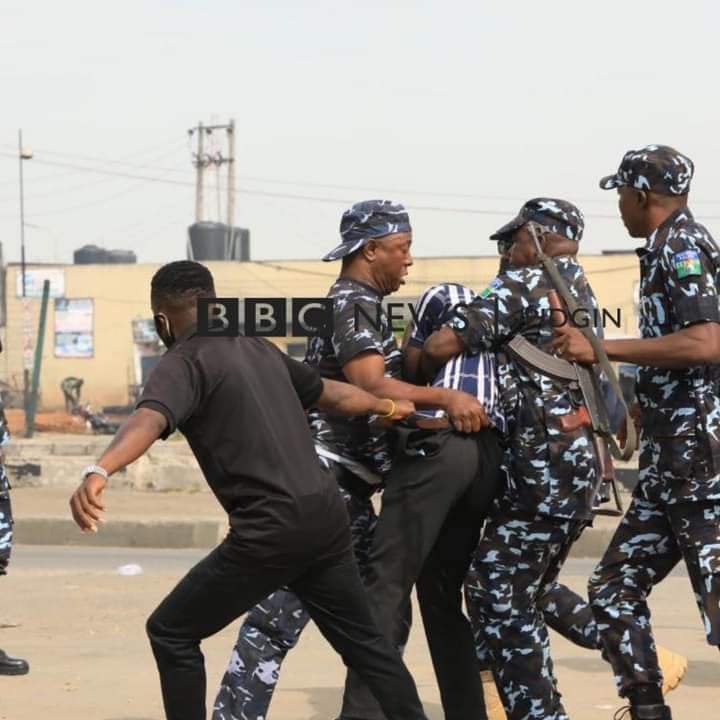
FULL LIST: Those Supporting, Against Aug 1 Nationwide Protest

Religious Leaders Harp On Tolerance At Grassroots Sensitisation Programme In Benin

Act Fast On Oil Spill Rocking Forcados Area, CSOs Task FG, Delta Govt
Trending

 News2 days ago
News2 days agoNationwide Protest: The Killer Is Afraid Of Death [OPINION]

 Metro5 days ago
Metro5 days agoConfusion As Female Passenger Dies In Lagos Keke Marwa

 News4 days ago
News4 days agoJUST IN: Tinubu Sends ₦70,000 Minimum Wage Bill To NASS

 Entertainment4 days ago
Entertainment4 days agoActress Denies Alleged Affair with Senate President Akpabio

 News3 days ago
News3 days agoPAP: Again, Otuaro Meets Stakeholders, Re-emphasises Importance Of Collaboration

 Headline3 days ago
Headline3 days agoBREAKING: SGF, NSA, Ministers In Emergency Meeting Over Planned Nationwide Protest

 News2 days ago
News2 days agoBREAKING: INEC Can Handle Local Government Elections, Says Chairman Yakubu

 Politics2 days ago
Politics2 days agoPlace Obaseki On Security Watch List, Edo APC Urges FG, As State Govt Kicks

 Headline4 days ago
Headline4 days agoElon Musk Opens Up About His Transgender Child

 News4 days ago
News4 days agoJUST IN: Senate Passes Minimum Wage Bill From N30,000 To N70,000
